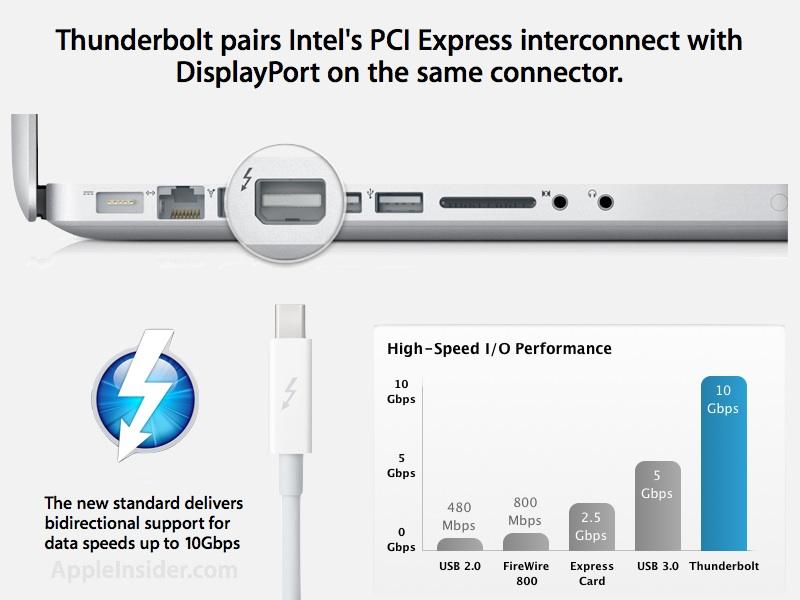While Apple has integrated Intel's Thunderbolt connection standard in every model of Mac the company has introduced since 2011, the technology has yet to truly take off in the computer industry, and one report says it is languishing due to Intel's tight controls over the standard.

Apple brought Thunderbolt to the Mac shortly after Intel officially introduced the technology, which the two companies developed in collaboration. Thunderbolt allowed for speeds 12 times faster than FireWire 800 and twice as fast as USB 3.0, as well as the ability to daisy-chain multiple devices without using a hub.
Apple secured an exclusive license on the technology shortly following its unveiling. Even when that license expired, though, other PC manufacturers didn't begin to adopt the standard en masse.
Additionally, the number of peripherals supporting the standard has been well below what some expected given its specifications. A research note from DigiTimes points the finger at Intel's unwillingness so far to license the technology behind Thunderbolt to other parties, a factor that keeps the cost of Thunderbolt high and wider adoption low.
Intel, according to the report, uses independent packaging for Thunderbolt chips, and the chipmaker maintains a tight grip on the technology. The specialized chips Intel places near Thunderbolt configurators are proprietary designs, meaning that Intel can maintain control over the pricing on Thunderbolt cables.
A four-channel Thunderbolt chip component has a wholesale price of $35, while a two-meter Thunderbolt cable has a recommended retail price of $39. These price points are keeping some smaller manufacturers from entering the Thunderbolt device segment, leaving it largely to established players.
Other chipmakers, including ASMedia, are trying to convince Intel to license the silicon intellectual property rights related to Thunderbolt. Licensing the technology, they argue, would allow other companies to make smaller-sized and cheaper peripherals. Intel has yet to respond publicly to such requests.
